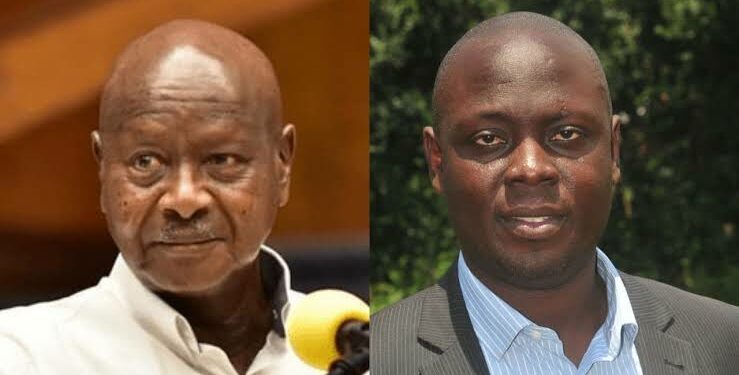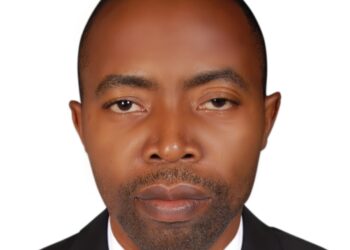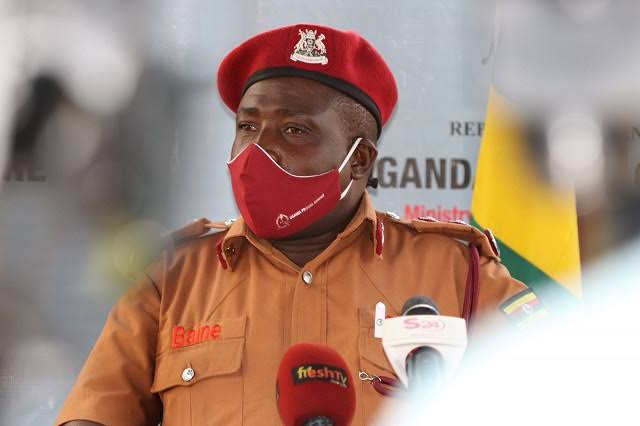Less than a fortnight ago, President Yoweri Museveni hosted HE Abit Ahmed, the Prime Minister of Ethiopia and held stately person-to-person talks at State House after which both principals shared that they had agreed to “walk together” in the interest of Africa. In November last year, President Museveni had to break off the campaign trail to meet a delegation of Ethiopian officials led by Deputy Prime Minister, His Excellency Demeke Mekonnen Hassen at Gulu State Lodge. The discussion was centered on peace and security matters affecting Ethiopia.
Ethiopia is facing serious unrest in the Tigray region where federal government troops are battling forces loyal to the Tigray People’s Liberation Front (TPLF), the party of the regional government. The unrest has spilled over Ethiopia’s borders and threatens to destabilise the wider Horn of Africa region.
I, therefore, have no doubt that when Abiy met Museveni, security in Tigray must have been touched on being that Horn of Africa, which includes Somalia, is a strategic point on the map of Africa. Anything going wrong there could set the whole continent on fire.
While commissioning cadet officers of the prisons service at Kololo in the same week, President Museveni hinted that he was discussing with the United National Security Council to agree on modalities for deploying in Eastern DRC to flush out insurgents operating there, butchering the Congolese and disturbing Uganda with bloody incursions like those witnessed in Masaka.
Within the same week, the president was to hold a successful consultative meeting with 5 ambassadors representing the permanent representatives of the United Nations Security Council at State House, Entebbe.
For those not familiar with the Security Council, it is the United Nations principal crisis management body and is empowered to impose binding obligations on the 193 UN member states to maintain peace. It has five permanent (US, Russia, France, China and UK) and 10 elected member states meet regularly to assess threats to international security, including civil wars, natural disasters, arms proliferation, and terrorism. It the world’s key decision making body which is responsible for the UN’s peacekeeping and security missions.
I am confident that if Museveni justified why deploying in DRC at this time is critical for the Security Council’s mandate as well as peace and stability in the region, the envoys will convey the message and the all-powerful council will give the operations a greenlight. This is because Museveni has mastered the security challenges of the Great Lakes region and can lecture anyone in the world on the way forward.
I don’t think that the envoys will meet every president in the region. They will only meet Museveni or a few others and their homework is done. Museveni is the “moving African encyclopedia” andhe speaks with conviction, passion and great consistency whenever addressing issues that matter to Africa.
In zeroing on him for consultations, fellow African brothers in leadership like Abiy know that they have partner with empathy and who appreciates both the complexity and simplicity of their problems and offers meaningful honest and sensible propositions to help bring total order in the region.
Consulting MUseveni is the right thing to do because of his unique credentials of seniority, experience and devout Pan-Africanism.
In the whole of Africa today, President Museveni stands out as a living son of the continent with the deepest practical understanding of its problems, and their origin. This has equipped him with the ability to come up with reasonable solutions to current and emerging problems.
When he talks about regional blocs and progressive African integration, some people take it for academic talk but the Museveni I know never speaks in abstracts; usually, he foresees causes and outcomes and puts them in consideration in his planning and peer interactions.
So, when our president is arbitrating matters at regional level and being consulted at global level but you find some actors busy attacking innocent citizens in Masaka, they may think they are hurting Museveni whereas not. They are only bringing curses on themselves and the blood of their victims will cry out from the wilderness demanding to be avenged. Museveni has little to prove himself because the world understands his capacity and expertise.
Anyone who believes that attacking anyone with a machete will diminish Museveni’s record and reputation as a security guru will not achieve anything. There is no contest there, and it’s a big joke to try! Anyone who wants to challenge him should join the political fray and forget using unconstitutional methods to take power. If indeed politicians are involved in the killings in Masaka, then they have lost a chance to become “successors”.
By the way, every criminal act carries a political aspect to it. The discomfort caused by criminals always reflects badly on the government in power. The killers in Masaka, whoever they are and whatever their acclaimed motive, are acting with political consciousness. If not, why would they risk so much when we are told that they do not carry away anything from those they kill? Their pay must be in another form, but whatever it is, they cannot get away in Museveni’s Uganda when our president has the ear and goodwill of, among others, the most powerful decision-making body in global security matters.
The author is a Presidential Assistant in Charge of Media Management
Contact: kirundaf2@gmail.com
0776980486/0702980486
Do you have a story in your community or an opinion to share with us: Email us at editorial@watchdoguganda.com













